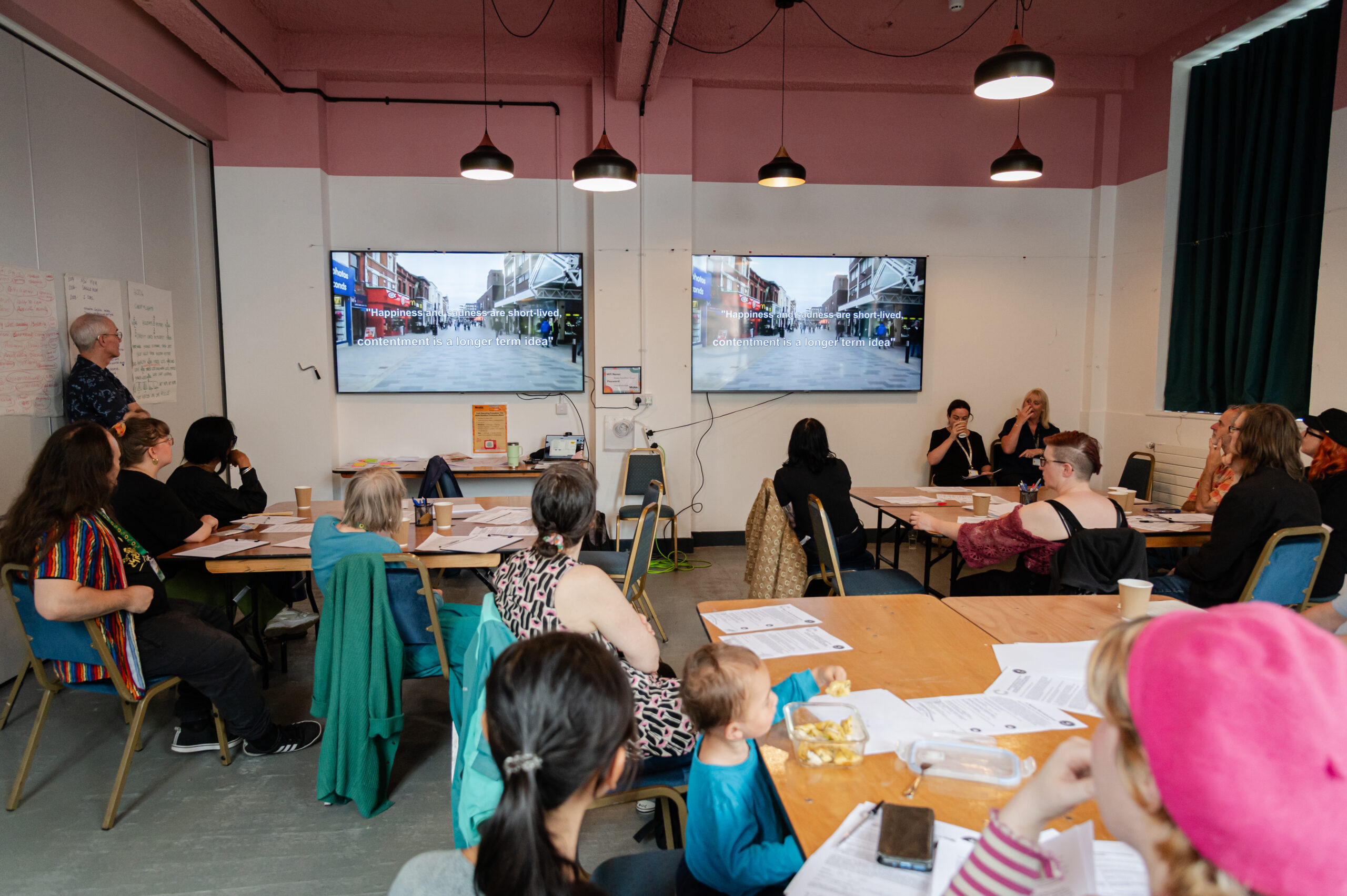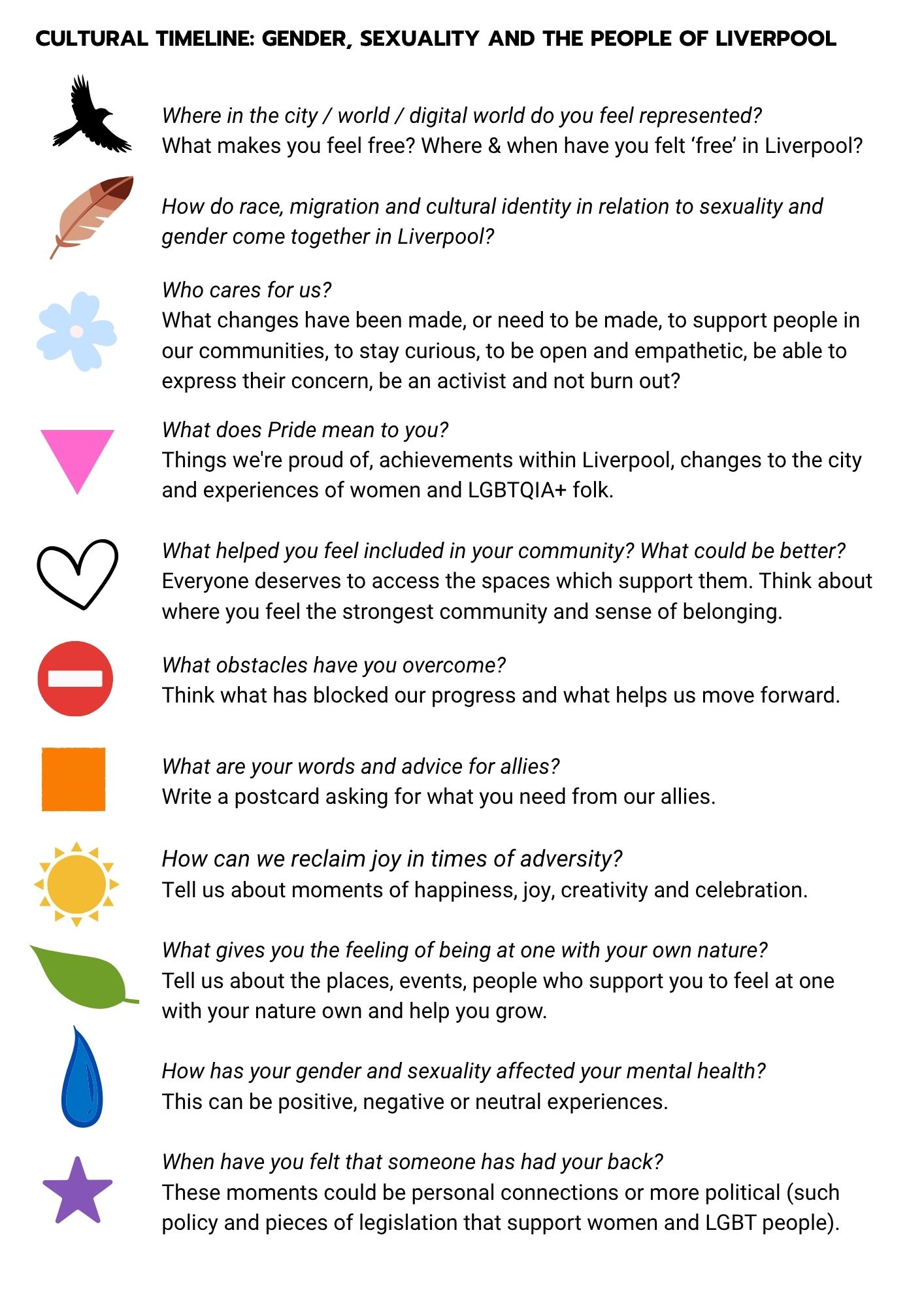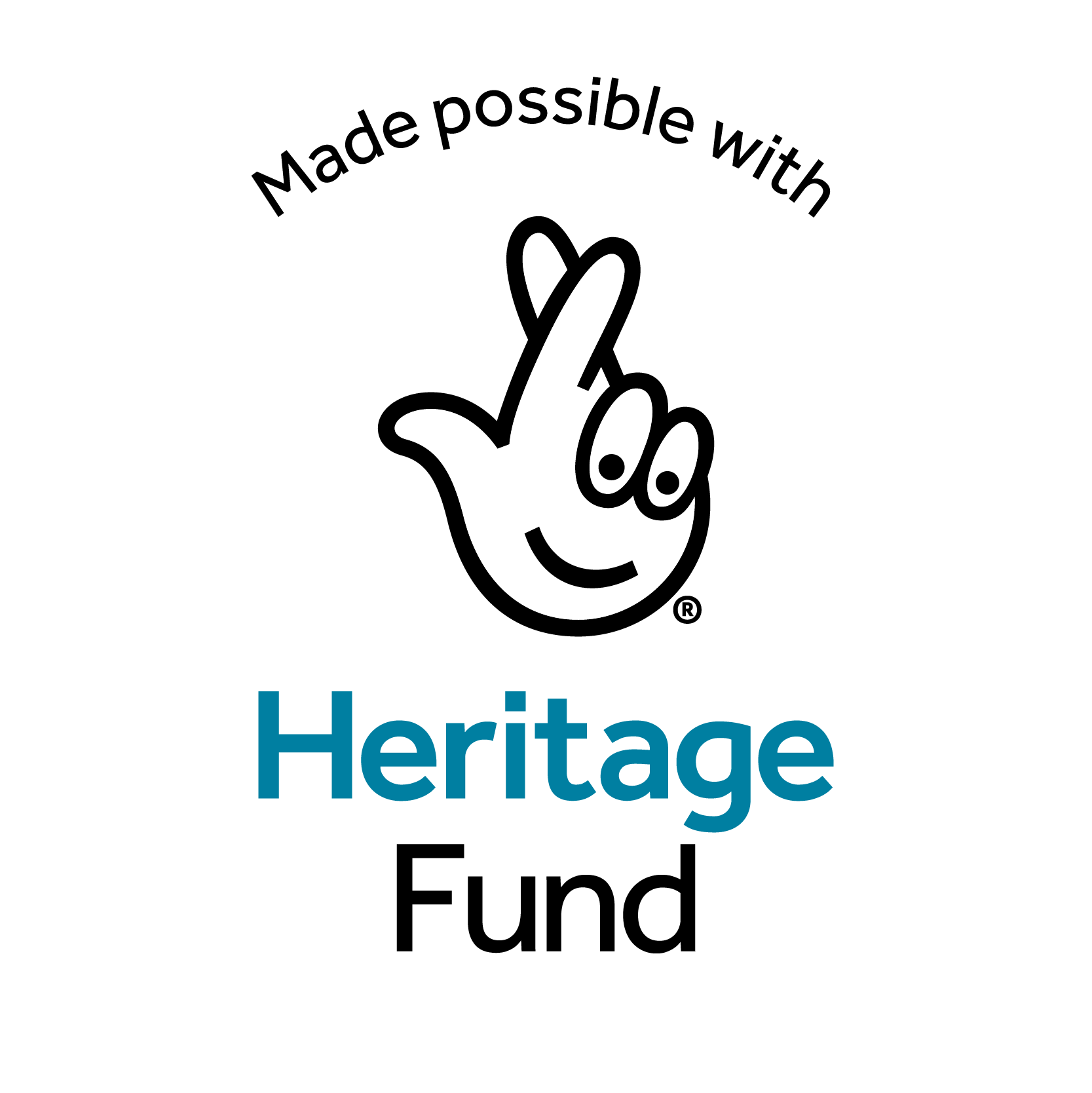Cultural Memory events are open events that bring together people with experience of a time and place, an interest in, or a story to tell – from the three events held so far we have created ‘ideaspaces’ that can be explored at leisure. Our first three events looked at Gender, Sexuality and Identity; Disability, Neurodiversity and Mental Health; and Diaspora, Race and Migration. These ‘ideascapes’ are multi-media, multi-voiced and open ended.

Diaspora, Race and Migration
The Cultural Memory Workshop on Diaspora, Race and Migration linked conversations with Asylum Link in Edge HIll and the Croissant of Inequality in Kensington to look at how our notions of what it is to be ‘settled’ or a ‘migrant’ have changed over time. Starting with a long view that, historically, migration and movement has been a normal part of human society, we brought these conversations to a workshop at Metal in Edge Hill Station that explored questions such as:
If there were no borders and you could live anywhere:
- Where might you choose to live?
- What essentials would you need?
- What luxuries would you want?
- What obstacles might you need to overcome?
- What gift would you take with you from home for your new community?
- What would you like to share about your culture?
- What cultural events have you been to in Liverpool?
- What did you learn from these events about yourself and your community?
- What is Sacred and important about ‘community’?
- What cultural event or festival would you like to invent to celebrate
- What is sacred and important about community?
If you were going to design an exhibition about the diaspora (migration) in Liverpool over the past 20 years what would you put into it?
Gender, Sexuality and Identity
For this Cultural Memory workshop Women in Action adapted our Tree of Life methodology to facilitate an exploration of gender and sexuality. The group co-created a set of questions and prompts to support participants in the public workshop to explore their own identity and tell their own stories, in their own words. We also wanted to know what has changed, when and how these changes were experienced by women and queer people in Liverpool over the last twenty-one years.


